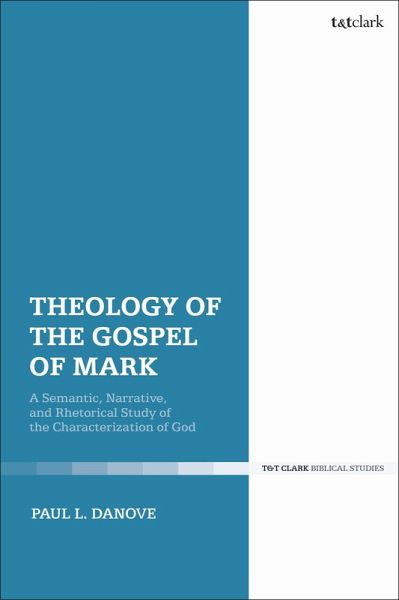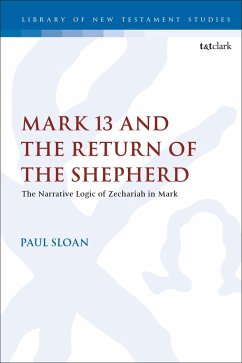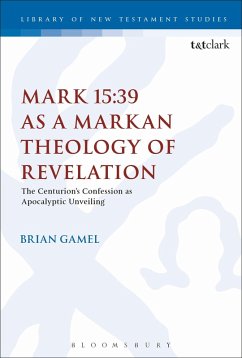
Theology of the Gospel of Mark (eBook, ePUB)
A Semantic, Narrative, and Rhetorical Study of the Characterization of God
Versandkostenfrei!
Sofort per Download lieferbar
26,95 €
inkl. MwSt.
Weitere Ausgaben:

PAYBACK Punkte
13 °P sammeln!
Paul L. Danove presents the first full-length study of God and the theology of God in the Gospel of Mark. In dialogue with scholars who assume that texts are designed to guide their own interpretation, Danove develops and applies methods of analysis to describe the actions and attributes of God in the Gospel of Mark. Danove presents his argument in a threefold structure, beginning with outlining a set of complementary semantic, narrative, and rhetorical methods for investigating characterization. He then moves to examine the semantic and narrative content related to the character of God in the...
Paul L. Danove presents the first full-length study of God and the theology of God in the Gospel of Mark. In dialogue with scholars who assume that texts are designed to guide their own interpretation, Danove develops and applies methods of analysis to describe the actions and attributes of God in the Gospel of Mark. Danove presents his argument in a threefold structure, beginning with outlining a set of complementary semantic, narrative, and rhetorical methods for investigating characterization. He then moves to examine the semantic and narrative content related to the character of God in the Gospel of Mark and then formulates this information under the guidance of the narrative rhetoric into statements of God's fifty-six repeated and sixty-two non-repeated actions and attributes, arranged according to God's portrayal as semantic agent, benefactive, content of human experience, experiencer, goal, instrument, patient of predication, source, theme, and topic of faith.













